We’re officially halfway through the season, and it seems like every other day, a new film becomes “The Highest Grossing Film of the Summer”. It’s Captain America 2, no wait X-Men, no, Transformers, etc. But have we finally found the best movie of the summer? Scroll down for that, plus a new Blu-Ray to add to your collection, a new TV show from the mad genius Guillermo Del Toro, the latest news and a review of this week’s short. And seeing as how the Emmy’s are only 6 weeks away, we’re going to begin a bit of Emmys catch-up for those who want to be in the know, giving you the down-low on a nominee in each major category every week until the big night. So let’s delay no further, it’s time for this week’s Buzz.
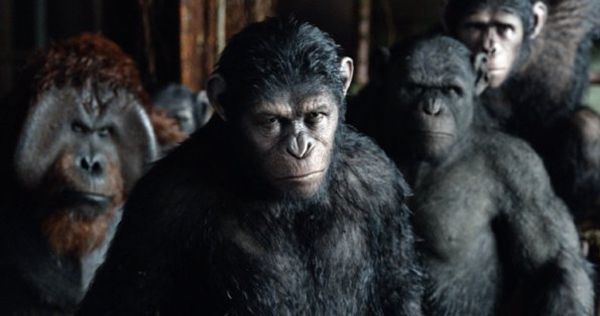
Movies: In this modern world of web-based journalists and critic aggregation sites, film critics can be placed into one of two columns: film scholars or film fans. The scholars tend to relish in the art of filmmaking, its ability to provoke thought, to evoke catharsis and introspection. They raise the names of auteurs like Tarkovsky and Bergman, and bemoan the death of cinema at the hands of CGI, or superheroes, or whatever’s popular now before its critical reevaluation in 20 years makes it “brilliant”. The film fan, on the other hand, embraces the escapism in cinema, praises the blockbuster, and shuns anything with subtitles and without spurts of blood. The two are perpetually at odds, and to each there is a season: The summer yields the countless blockbusters that draw the scholar’s ire, and the prestige autumn releases have such a dearth of destruction as to put the film fan in a state of hibernation. Rarely can any film ever unite the two, and even more rarely when its a franchise blockbuster (cinematic cancer in most critics eyes). Yet, after a rocky reboot resulted in tepid expectations, it appears we may not have just seen the best film of the summer, but the dawn of science fiction’s return to form.
It’s been described as a blockbuster for people who don’t like blockbusters, but that’s selling the film short. It’s also a fantastic blockbuster for people who do. Instead, the key is that Dawn of the Planet of the Apes is the first film in the franchise since 1969 to not try to have something to say. The film isn’t focused on being a part of the franchise (like the gradually more painful 70’s sequels), nor trying to cram countless references to the classic (like Rise of the Planet of the Apes’ painful “damn dirty ape” homage that nearly killed Andy Circus’ brilliant response of “No!”;), nor…well…whatever Tim Burton did that he thought was a good idea at the time. What made the original Planet of the Apes so good, so poignant, was its intention. It didn’t set out to thrill (though it did), it didn’t exist to set up a franchise (though clearly it did), it wanted to make a statement. It created a horrifying world where humans were hunted and ruled over by apes, a twisted madhouse from which Charlton Heston’s famous George Taylor is desperate to escape, finally fleeing horseback on the beach to discover what has become one of the most iconic images in cinema: the sunken Statue of Liberty in the sand. That was it. No post-credits sting, no teaser for the next film, no cameo appearance from Robert Gunner’s John Landon toting guns in a tank saying “Time to take back our planet” while AC/DC blasts and credits scroll. Nothing hopeful. Nothing looking forward. Just the cold dead eyes of Lady Liberty asking a Cold War ravaged world to look at themselves in the mirror and ask “Could it be? Could that really happen?”
Of course, the original Planet of the Apes benefitted from its culture, and not just the Cold War paranoia aspect. 1968 was a pre-blockbuster world, at least in the way we know it. This is not to suggest there weren’t moneymen at the top of the food chain focused solely on profits, there were. Just because the mad scientist and bikini beach party movies haven’t received blu-ray rereleases doesn’t mean they didn’t exist. However, it was a time less obsessed with special effects, less worried about action and more focused on story, particularly for the still-niche genre of science fiction. Going back to its earliest roots, films like Fritz Lang’sMetropolis and Robert Wise’s The Day The Earth Stood Still, science fiction endeavored to teach people about themselves, to function as allegories that reflected the destructive nature of man, with the emphasis on nature. It was not about the danger of science itself, but rather the danger of man himself, the beast inside of him and his war-mongering ways that would destroy us. Then somewhere around the time a boy on Tatooine met an old man named Ben, a once reflective genre moved outward, trading introspection for spectacle, awareness for elation and escapism. Planet of the Apes is one of the final remnants of socially conscious science fiction, and with the rare return to form like District 9 or John Carpenter’s The Thing, such a concept has remained in the past. Until now.
What makes Dawn of the Planet of the Apes so stellar is its daring (for a big-budget genre blockbuster) balance of action beats and pauses. Certainly, theres enough pulse punning action to keep you on the edge of your seats (and you haven’t seen true cinematic insanity until you’ve watched a sentient ape dual-wield machine guns while riding horseback through a fire), the film never relies on cliches, or stereotypes, or allows the audience a moment of confident assurance that someone is “the bad guy”. The reason for the ape’s initial rise was to break free from human bondage and its accompanying abuse, so when the segregated colonies of man and ape are reconnected in a moment of human desperation, the clash-starved, cocksure alpha males on both sides (Kirk Acevedo’s cautious Carver and Toby Kebbell’s award-worth Koba) demand bloody conflict in that eternal idea of “solving it once and for all”. While Andy Circus’ Ceasar and Jason Clarke’s Malcolm seek a peaceful resolution, and are clearly the heroic figures within the film, director Matt Reeves bravely allows his multi-million dollar film to actually demand something of its audience, drawing no clear lines and making every figure sympathetic. Perhaps the most striking image in the whole film (besides the aforementioned gun-toting primate) is Gary Oldman’s fearfully, fervently war-ready Dreyfus taking a moment to look at a newly charged iPad, staring at his family who were slain by a disease for which he was immune, a disease created by man but blamed on apes, and he weeps. Genuine, painful tears, the film unflinching in its portrayal of an emotionally wounded man who wants to do right for the world. Its the kind of scene any other film of its kind would have left on the cutting room floor, and ye its these scenes which elevate Apes to the glory of the original, if not perhaps even higher.
Its impossible not to hear echoes of real world struggles within the film, and even draw emotion from the viewer who, in their heart if not in their minds, draws parallels with the CGI figures on screen and stories somewhere far away in time or place, stories they may not even know. A son torn between a pacifist father and a power-mad crusader. A fool-hardy man who starts war with the intention of ending it. The climate of mutual distrust like a powder keg waiting to explode at the drop of a match. From the powerful, evocative writing to the absolutely Oscar-worthy performance of Andy Circus as Ceasar, Dawn of the Planet of the Apes more than makes good on the promise of the previous film, but inspires a sense of hope by being unafraid to be hopeless. It’s ending shot, replicating its opening look at Ceasar’s eyes, demand the audience look deep into not just what could be the future of humanity, but what should be the future of blockbuster cinema.
——
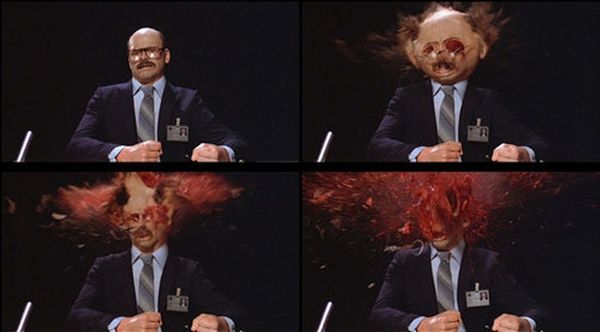
The Criterion Collection is known for its high-end DVDs and Blu-Rays, bringing to the public classic and hard-to-find films in definitive additions, packed with countless commentaries, essays and documentaries. Their entries range from Wes Anderson comedies to Godard experiments to Kurosawa dramas, and now they’ve added another classic title, albeit with a more B-movie flair: David Cronenberg’s cult-classic Scanners. The third Criterion Blu-Ray for Cronenberg (after Videodrome and The Naked Lunch), Scanners comes packed with three interviews, a new documentary about the mind-blowing special effects, as well as a new 2K transfer of Cronenberg’s first feature film, Stereo.
As for the transfer of Scanners itself (also in 2K), it is, as always top notch. Supervised by David Cronenberg himself, it has an uncompressed monaural soundtrack that sounds clear as day, and still retains all of the film grain of the original film with the utmost color and clarity picture-wise. The cult-classic Canadian tale of psychics known as scanners has retained a great deal of esteem over the years, and its a comfort to know upon rematch that the film holds up brilliantly where many 80’s science fiction films falter. It’s iconic moments have never looked better, and this must-own entry in the expansive Criterion collection will get you even more excited for their upcoming Blu-Ray release from another auteur of the unsettling, David Lynch’sEraserhead. Check out below an excerpt from the documentary about the film’s most iconic scene, the exploding head, then run to your nearest brick and mortar movie store to buy this brilliant Blu-Ray.
——
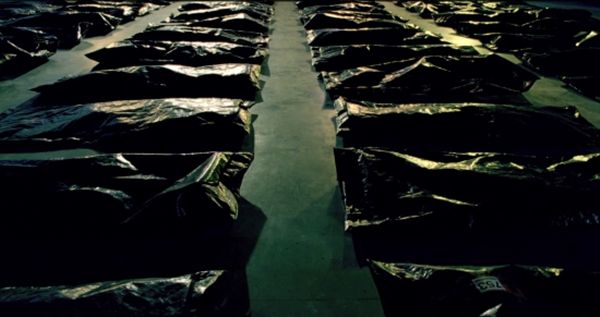
TV: This week the network that brought you American Horror Story decided they wanted something that actually resembled horror, and lucky for us, they brought in a master. Guillermo Del Toro is no stranger to the genre, with classics like Cronos and The Devil’s Backbone under his belt (to say nothing of the beautifully dark Pan’s Labyrinth), and the premiere of his new FX series, The Strain, has to be the most tantalizing piece of horror television since Mulder and Scully hung up their trench coats. Based on his own 2009 novel with Chuck Hogan, Del Toro’s is a vampire story unike any you’ve seen. Everyone from Corey Stoll’s NYC CDC agent to Jonathon Hyde’s villainous Eldritch Palmer work brilliantly to sell the show’s potentially goofy premise, but the stand-out,and what elevates The Strain to the most exciting show on television right now, is David Bradley’s (Harry Potter, Game of Thrones) Abraham Setrakian, a pawn shop owner with an ominous air who might have all the answers to the mysterious outbreak which kills a plane-load of passengers at JFK airport. The feature-length premiere episode packs so many twists and turns that any plot-description can be a spoiler, so we’ll do our best to avoid it save one, which is the show’s only flaw: the painfully cliche’d family. Yes, Stoll’s Ephriam Goodweather is in the typical cop show “My wife thinks I’m too absorbed in my job, won’t let me see my kid, is seeing another man” etc. situation, except not only has it been done countless times prior, but it barely applies here. It makes sense when the wife on a cop show is upset her husband is too absorbed in the job, out investigating murders, chasing cold trails, etc. But here’s a man whose job is very much time sensitive. He’s not answering the phone to avoid you. He’s answering it because if he doesn’t, another plague could start. With so many sympathetic women on TV getting ridiculed by sexist fanboys (Skylar White, Laurie Grimes), The Strain would do best not to exacerbate the issue with an actual irrational wife character. If it can avoid that minor pitfall, and it retains the visual brilliance of the pilot (directed by del Toro), The Strain could prove to be one of the best series of the year. Check it out Sundays on FX.
——
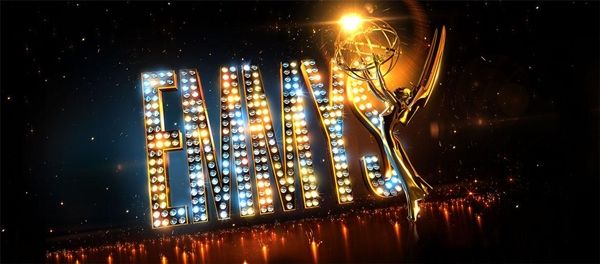
Emmy Catch-Up
Every week, we here at Man of the Hour will catch you up on one show in each of the major Emmy categories: Drama, Comedy, Miniseries, Movie and Variety (Animation will star next week, as it only has five nominees). We’ll tell you what it’s about, what it’s up for, where to catch up and even pick a highlight from the season (which is of course fairly spoilerific, so perhaps avoid clicking play if you haven’t seen the show).
Drama: True Detective
What is it: This hauntingly philosophical crime drama came in with a bang in its debut season, taking the internet by storm with quandaries of who is the Yellow King, what is Carcossa, and who killed Dora Lang. The show stars Woody Harrelson and recent Oscar winner Matthew McConaughey as Marty Hart and Rustin Cohle, respectively, and jumps between present day and 1995 as two investigators interrogate the former detectives about a murder case, supposedly solved. The transfixing, near-Lovecraftian mystery is made all the more compelling by present day Cohle’s meta-physical musings (“Time is a flat circle” might be the most quoted line of the year), and its constantly cinematic visuals (every episode was directed by Cary Fukunaga) matched the spellbinding writing of Nick Pizzolatto, which packed enough suspense and story into 8 episodes to create a finale so anticipated it crashed HBO Go. Perhaps, to have watched it week by week, all the little unanswered questions made viewers unable to see the big picture in this first installment of the intended anthology series, but its well worth a binge-viewing (or re-viewing) to see the real reason Pizzolatto crafted this dark puzzle as he did.
What else is it up for: In addition to Best Drama Series, True Detective is up for 11 awards, including Best Writing, Best Directing, Best Cinematography and a Best Lead Actor nomination for both McConaughey and Harrelson.
Where to catch up: The entire first season is available on HBO Go, as well as DVD and Blu-Ray.
Best scene [Spoilers]: By far, the most memorable episode of the series was “Who Goes There”, the fourth episode which introduced us to Cohle’s biker alter-ego Crash, and ended with the single greatest tracking shots in television history, and one of the most exciting TV moments in years.
Comedy: Orange is the New Black
What is it: Ok, there’s nobody alive who hasn’t heard of Netflix’s beloved prison-set comedy, but let’s go through the motions, shall we? Nominated this year for its first season (despite its second having already been released. All the episodes at once streaming has messed up the Emmy rules), Weeds creator Jenji Kohan has brought the most diversity to TV since The Wire, and with far more gallows humor, though no one is being sent to the chair yet. Every crazy character in the seeming waking nightmare of WASP Piper Chapman’s prison stay becomes a fun and flashed-out fan favorite throughout the series’ 13 episode run, with flashbacks making (almost) every inmate a sympathetic figure, and stands as an example of our flawed justice system without ever seeming preachy. Funnier than any drama and more heart-wrenching than any comedy, this tale of an upper-class white suburbanite whose drug-mule past (and narcissistic ex) turn her life upside down and land her in the pound could have settled into either category, but Netflix made the right call here, running it in the particularly weak Comedy category and all but guaranteeing at least a little gold come the big night.
What else is it up for: In addition to Best Comedy Series, Orange is the New Black is nominated for 11 awards including Best Lead Actress for Taylor Schilling, Best Supporting Actress for Kate Mulgrew, and a whopping 3 nominations in the Best Guest Actress category for Natasha Lyonne, Uzo Aduba and Laverne Cox (the first time a transgender actress has been up for an Emmy)
Where to catch up: Naturally, the entire series is available on Netflix.
Best scene [Spoilers]: After the introduction of the vile Pennsatucky (Taryn Manning), fans knew no good could come of the self-righteous sociopath, and they were proven right when a mid-Christmas play showdown in the prison yard commenced, with Pennsatucky attacking Piper with a cruci-shiv, only to be knocked down by a suddenly resilient Piper. Fans were then treated to the most cathartic season finale ever as Chapman wailed on her assailant, blood splattering on the snow, as a Christmas hymn whisked us off into the credits, eagerly awaiting Season 2.
Miniseries: Luther
What is it: This is the third (and final) installment of the BBC’s pulp thriller starring Idris Elba (Pacific Rim) as DCI John Luther, a loose cannon cop who puts his work above everything. Series One devoted four episodes to the entrancing tango between Luther and Alice Morgan, a sweet young girl who Luther knows murdered her parents in cold blood played by Ruth Wilson (The Lone Ranger). Their Hannibal/Clarice relationship carried over into Series Two, which found DCI Luther taking on a masked murderer leaving cryptic messages, rescuing a girl lost in a haze of drugs and prostitution, and playing chicken with a pair of twin killers strapped with bombs. As though in an attempt to top it, Series Three begins with a massive police raid, and takes off from there with shoe-fetish stalkers, hands in blenders, vigilante justice and Luther under investigation from a shady DCU. Certainly, the pulp-y elements can wear on the viewer after a bit, and this wasn’t Luther’s strongest season (mostly due to a lack of Alice, the show’s biggest highlight), but while many are hesitant to dive into programing from across the pond, Downton Abbey this ain’t, and at only four episodes, its worth a watch for Idris Elba’s powerful presence alone.
What else is it up for: Luther is up for a total of 3 Emmys this year, including Best Miniseries, Best Writing and Best Lead Actor for Idris Elba.
Where to catch up: Every season of the show is available on Netflix.
Best scene [Spoilers]: As stated above, the series felt as though it were missing something. Something in the form of a calculating little redhead named Alice. Needless to say, by the time Episode Four rolled around, and yet another serial killer stand-off pushed us to the brink of our suspension of disbelief, our classy cutthroat returned to antagonize and assist the detective who engrosses her so.
Movie: Sherlock: His Last Vow
What is it[Spoilers]: Well, its a series, actually. The third three episode series of the beloved BBC relaunch of the Conan Doyle classic helmed by Doctor Who show runner Steven Moffatt, in fact. Why they chose to single out one episode and classify it as a movie is a bit of a puzzle. Why they chose the single worst episode from by far the worst season of the hit series is a mystery so confounding not even Cumberbatch’s Holmes could solve. After two seasons of modernized retellings of Arthur Conan Doyle’s mysteries, Series Three took a turn for the dreadfully sentimental and sensationalistic (throwing in a wedding with schmaltzy speech by Sherlock for good measure), culminating in His Last Vow, a showdown with an intriguing but ultimately underwhelming super genius Charles Augustus Magnussen, whom Sherlock outwits with the clever, intricate plan of shooting him point-blank in the head, you know, typical Sherlock Holmes style.
What else is it up for: Sherlock: His Last Vow is up for 12 Emmys this year, including Best Lead Actor for Benedict Cumberbatch, Best Supporting Actor for Martin Freeman, Best Writing for Steven Moffat and of course Best Made for TV Movie.
Where to catch up: The full series is available on Netflix, as well as DVD and Blu-Ray.
Best scene [Spoilers]: After the virtual character assassination committed by the writers in having Sherlock commit an actual assassination, the team attempted to win the viewers back with a tease about the return of the most famous villain in Holmes history (thought dead at the end of Season Two), Moriarty. And honestly? It worked.
Variety: Saturday Night Live
What is it: Now in its 39th season, this television sketch staple is still going strong, despite the annual critical lamenting of “SNL is dead”. The show’s success is mostly due to an influx of new talent last year, including current Emmy nominee and scene-stealer Kate McKinnon. This year’s unnecessary large batch of newcomers weren’t as memorable, and in fact caused a fair deal of controversy for being remarkably gentrified, but that didn’t stop the season from having its fair share of highlights, from Bruce Willis singing about a “Boy Dance Party” to Kerry Washington lampooning the show’s lack of diversity (weeks before the welcomed addition of Sasheer Zamata) and Jimmy Fallon and Justin Timberlake reuniting for yet anotherBarry Gibb Talk Show. There were no crash and burn musical acts, and no completely abysmal whole episodes, and while that is an admittedly low bar, its the same one we’ve had for SNL since Chevy Chase first said it was “live from New York”, so in that regard, SNL is still as sharp as ever.
What else is it up for: SNL is up for total of 14 Emmys this year, including two Best Guest Actor (Jimmy Fallon, Louie C.K.), two Best Guest Actress (Tina Fey, Melissa McCarthy), a Best Supporting Actress for Kate McKinnon and of course Best Variety Series.
Where to catch up: Several episodes are available on Hulu, with the full season on Hulu Plus
Best scene: A nominee this year for Outstanding Original Music and Lyrics, the sketch “(Let’s Do It On My) Twin Bed” was undoubtedly the highlight of the season, and proof that the digital short didn’t die with The Lonely Island (who probably would never have been fearless enough to fill a sketch with actual seventh grade photos. Just sayin’
——
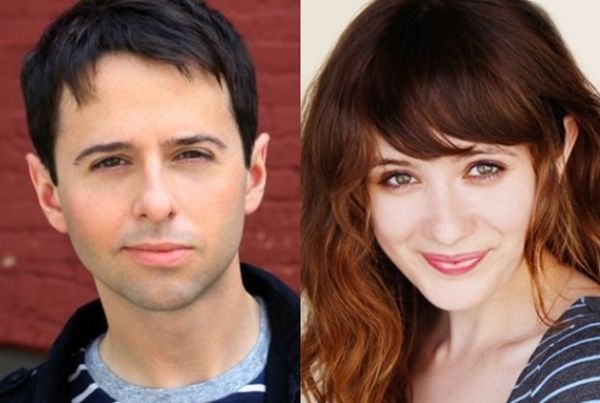
News: Speaking of SNL, they did some cleaning house this week, which had to be a crushing blow to a few young hopefuls even if none of the cuts came as a surprise. The first to go was Brooks Wheelan, who is best remembered for the Jimmy Fallon episode’s Family Feud sketch, wherein he played…himself, talking about how he’s never done anything on the show. Yikes, writing was a tad on the wall there. Next to go was John Milhiser, who will be remembered for the same sketch, but for doing a passable John Cryer impression. Once again, not exactly a highlight of the season. Most surprising is Noel Wells, who at least made waves for a dead-on Lena Dunham impression in the season premiere, but failed to make a splash after that. Sadder than any of these cuts is the announcement that long-time cast member Nasim Pedrad, whose great talent was never fully showcased on the typically male-centric show, will be leaving to appear on the Fox sitcom Mulaney, starring former SNL writer (and Tom Jones enthusiast) John Mulaney. Footage has been released from the upcoming sitcom in the form of a trailer and…well…at least she’ll get more screen time now.
——
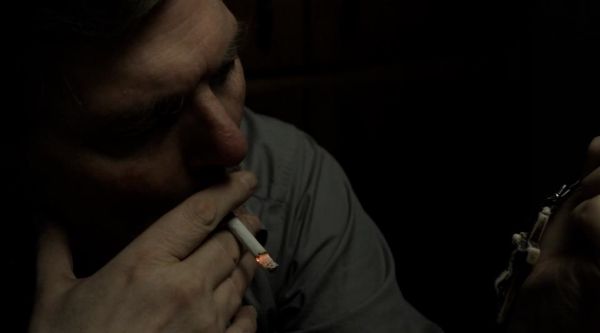
Short Film: The last two weeks, we’ve brought you shorts that have appeared in countless festivals, and this week we bring you one that should have. This under-the-radar gem is from unknown director Jae Kim, and shows a great deal of promise from someone with so few titles under his belt. Sins of the Father is the story of a priest who loses faith (if he ever had it at all) and quits the priesthood to look after his father, recently released from prison. The priest, played by Lance Marshall, does brilliantly, but it's the father, David Woodrow, who steals the show. The man's as gritty and real as the atmosphere the film's brilliantly passive cinematography creates, and elevates what would have been an engaging, meditative film to brilliant heights. The film sets a bleak tone from its start, and never lets it go, depriving us of the cliche epiphanic ending to instead give us a man who starts and ends in the same place, drifting listlessly, searching for something to hold on to, quietly yearning for a glimmer of purpose on the horizon. Yes, the Catholic guilt aspect of the film is on the surface, but dig deeper, and the priest isn't necessarily wrestling with faith in God. He is us, all of us who have ever struggled for purpose. His service to a heavenly father is only to fill the void of his own, and both "father figures" stand simply to give him some sort of goal, since he has nothing to want for himself. The film brilliantly hints at details it thankfully never sours the tone by delving into, such as the priest's alcoholism, the alter boy's (and perhaps even the priest's) closeted homosexuality, and his horrific childhood. Sins of the Father is a brilliantly, deliberately paced movie, and truly a work of art that's as accessible as it is personal.
No comments:
Post a Comment